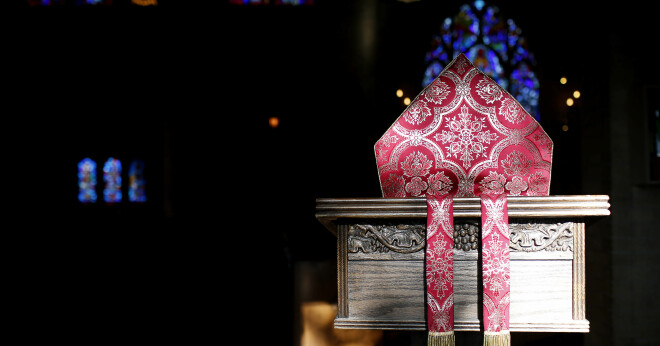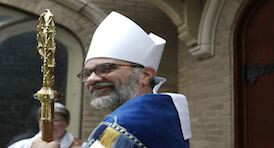Who's Your Daddy?

If you were to take a standard seminary course on Anglicanism, and hear who the seminal figure was for the catholic liberalism that prevails in the Episcopal Church, you would hear tell of F. D. Maurice. He taught in London in the mid-19th century. He was shy and academic, but a bit of a rebel too, refusing as he did to subscribe to the 39 Articles. It is always good to look back at the major figures in a movement, since it helps us to see where depreciation has begun at the edges of its edifice. I have been reading him lately, and want to offer three Maurician themes for today.
-
Universalism? Maurice believed that all creation was already in Jesus Christ. He has reconciled the world to himself! (II Corinthians (5:19). In this he has a certain unlikely affinity to the great modern neo-orthodox theologian Karl Barth, and more distantly, to Greek church fathers who believed in the 'apokatastasis,' the gathering of all in all in Christ. What are we to make of all this?
If we are to take Maurice's view to be a rejection of final judgment and eternal loss, I cannot join him. There is too much about these themes in the New Testament, and God honors the integrity of His own creatures too much. Just the same, we need to note something of worth in Maurice's view. The scope of salvation derives from a deep appreciation of Christ's victory. He is the active agent of this cosmic work. It does not come from a divine shrug or from a simplistic doctrine of a good creation alone with no need of Christ. If Maurice errs, it is at least in the service of a vast conception of Christ's work. The same cannot be said of the easy universalism so often found today.
-
'The kingdom of Christ.' Maurice lived at a time coming to terms with the pluralism among the churches and within the Anglican Church itself. Here too he wanted to push through to the inner spiritual reality of Christ dwelling with His people. Maurice refused to see parties within Anglicanism as antagonists, but rather as dimensions or trajectories on the truth, which require one another. The truth in Christ for the Church requires a dialectic, flint against flint. I associate such ideas with what one might call a 'good liberalism,' providing intellectual provision and room for one's opponent. Have we lost some of this spirit in contemporary Episcopalianism?
-
'Christ among the religions.' The question of how to understand the pluralism between the religions has been a hot topic for several generations. Already in the mid-19th century Maurice was one of the theologians that could discern some perception of the divine, and some complementary role, in the religions. But they need Christ as their summation and perfection. This approach has come in for strong criticism in the 20th century. But at least he was raising the question, and at least he was placing Jesus Christ at the center of his 'inclusivist' answer. Sometimes a wrong answer for the right reason makes a worthy contribution too.
In all three areas and others as well we do well to recall a seminal Anglican catholic with a vision more truly liberal and more deeply Christocentric than those of many of his grandchildren.
Peace,
+GRS




